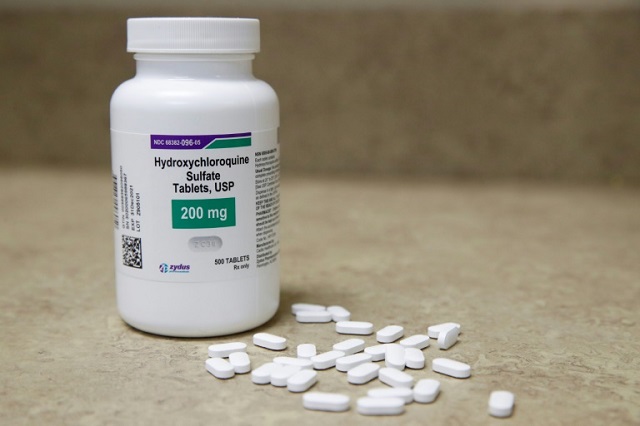
Washington, United States | AFP | The United States on Monday withdrew emergency use authorizations for two antimalarial drugs favored by President Donald Trump to treat the new coronavirus, effectively shutting the door on the politically charged treatments.
Hydroxychloroquine (HCQ) and chloroquine (CQ) were authorized in March after they were found to inactivate the virus in test tubes, and early small studies appeared to show they worked well in humans, too.
Since that time, however, larger, better-controlled experiments have found that the two medicines are ineffective in treating COVID-19 or in preventing infection among people who have been exposed to the virus.
Meanwhile, safety concerns have been raised around their use — particularly the risk of causing irregular heart rhythm in certain patients.
“It is no longer reasonable to believe that oral formulations of HCQ and CQ may be effective in treating COVID-19,” Denise Hinton, chief scientist of the Food and Drug Administration (FDA) wrote in a letter.
“Nor is it reasonable to believe that the known and potential benefits of these products outweigh their known and potential risk.
“Accordingly, FDA revokes the EUA for emergency use of HCQ and CQ to treat COVID-19.”
The emergency approvals paved the way for the medicines to be donated from a national stockpile to hospitals to fight COVID-19, and were seen as an intermediary step before full regulatory approval.
Both drugs are approved for use against malaria, as well as the autoimmune conditions rheumatoid arthritis and lupus.
Doctors will therefore still be able to prescribe them “off label” against COVID-19, though this is strongly discouraged by US health authorities.
Even so, the end of the authorizations presents a blow to Trump, who has personally backed HCQ on numerous occasions, calling it a potential “game changer” based on his gut feelings.
He has also said he used the drug to ward off infection — but a recent clinical trial found it to be ineffective for this purpose too.
HCQ has likewise received ringing endorsements from right-wing news media, including Fox News, and Brazilian President Jair Bolsonaro, as well as in France from supporters of scientist Didier Raoult, who conducted one of the early experiments that showed favorable results.
On the whole, it has pitted politicians against the scientific establishment.
In May, Rick Bright, a prominent government scientist, testified in Congress that he was removed from his vaccine development role because he had raised concerns about HCQ and resisted its widespread use.
Two major clinical trials this month, one in the United Kingdom and another in the US and Canada, underscored the drugs’ lack of efficacy.
But HCQ was also at the center of an academic scandal when the prestigious journal The Lancet retracted a study that claimed the drug raised the risk of death.
The paper was withdrawn after most of its authors said they could no longer vouch for the authenticity of a dataset supplied by a small Chicago-based health care company.
Despite the affair, scientific consensus appears to have hardened against HCQ’s use for COVID-19.
 The Independent Uganda: You get the Truth we Pay the Price
The Independent Uganda: You get the Truth we Pay the Price


